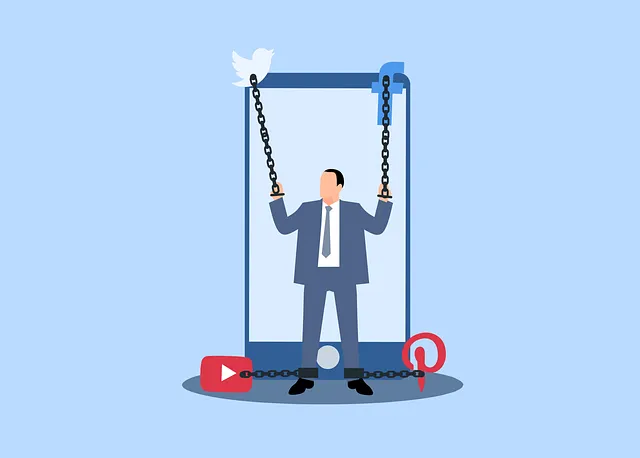The stigma around mental illness creates barriers for individuals seeking help, leading to isolation and limited access to care. Organizations like Kaiser Permanente in Lakewood combat this through comprehensive mental health services, education, and advocacy. They offer therapy, counseling, support groups, trauma support, self-care development, and risk management planning, destigmatizing mental health issues and improving community well-being. Healthcare providers play a crucial role by fostering open conversations, providing non-judgmental support, and encouraging early help-seeking without fear of social ostracization. In Lakewood, where access to Kaiser's services is vital, professionals have a heightened responsibility to challenge mental illness stigma through compassionate care and burnout prevention strategies.
In the pursuit of a healthier society, addressing the stigma surrounding mental illness is paramount. This article explores the multifaceted efforts aimed at reducing this barrier, delving into the root causes behind the societal shame associated with mental health struggles. We examine programs and initiatives designed to foster understanding, as well as the critical role healthcare providers play in breaking down barriers. Discover how organizations like Kaiser Permanente’s services in Lakewood are making a difference, providing hope and support for those seeking mental wellness.
- Understanding the Stigma Surrounding Mental Illness
- Efforts to Reduce Stigma: Programs and Initiatives
- The Role of Healthcare Providers in Breaking Down Barriers
Understanding the Stigma Surrounding Mental Illness

The stigma surrounding mental illness is a significant barrier to individuals seeking help and support. It often manifests as negative perceptions, stereotypes, and discrimination, leading to social isolation and reduced access to quality care. This stigma can be deeply ingrained in society, affecting not just individuals with mental health conditions but also their families and friends. Understanding the roots of this stigma is crucial for effective reduction efforts.
Many factors contribute to the stigma, including a lack of knowledge about mental health issues, historical misconceptions, and media portrayal. Organizations like Kaiser Permanente, even in areas like Lakewood, play a vital role in combating this stigma through comprehensive mental health services and advocacy. By promoting open conversations, educating communities, and implementing evidence-based practices, they contribute to a Mental Health Policy Analysis and Advocacy that challenges stereotypes and fosters an environment of support and understanding. Initiatives aimed at self-esteem improvement and anxiety relief are also essential components of these efforts, as they empower individuals to share their experiences without fear of judgment.
Efforts to Reduce Stigma: Programs and Initiatives

Efforts to reduce the stigma surrounding mental illness have gained significant traction in recent years, with various programs and initiatives springing up across communities, including Lakewood. Organizations like Kaiser Permanente offer a range of mental health services, from therapy and counseling to support groups, aiming to destigmatize these issues and provide accessible care. These efforts often involve educational campaigns that raise awareness about mental health conditions, challenge societal norms, and promote empathy.
One notable approach is the integration of trauma support services, recognizing that many mental health struggles stem from traumatic experiences. Initiatives focused on self-care routine development encourage individuals to prioritize their well-being through structured routines, thus fostering resilience and improving overall mental health. Additionally, risk management planning for mental health professionals plays a crucial role in ensuring practitioners have the tools to navigate challenging situations safely and effectively, thereby reducing potential risks and enhancing patient care.
The Role of Healthcare Providers in Breaking Down Barriers

Healthcare providers play a pivotal role in breaking down barriers associated with mental illness stigma. They can significantly influence public perception by demonstrating empathy, understanding, and expertise in treating mental health conditions. By integrating sensitive communication and non-judgmental attitudes into patient interactions, healthcare professionals create a safe space for individuals to openly discuss their struggles. This, in turn, encourages them to seek help early on and adhere to treatment plans without the fear of social ostracization or self-stigma.
In areas like Lakewood where access to mental health services, such as those offered by Kaiser, is crucial, healthcare providers have an added responsibility to combat stigma. They can achieve this through Burnout Prevention Strategies for Healthcare Providers that focus on maintaining emotional regulation and fostering self-esteem improvement among their ranks. By prioritizing their own well-being, providers can more effectively support patients, thereby contributing to a society where mental illness is met with compassion rather than isolation.
Mental illness stigma reduction is a multifaceted effort that involves education, awareness, and support from various sectors, including healthcare providers. As organizations like Kaiser in Lakewood work to expand access to mental health services, it’s crucial for communities to actively participate in breaking down barriers and fostering an environment of understanding and acceptance. By continuing these initiatives, we can create a more inclusive society where individuals with mental health conditions receive the help they need without fear of judgment or discrimination.






